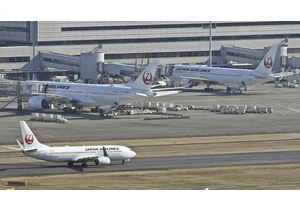This holiday season, Walmart’s innovations in data science are enabling its stores to make deliveries to 12 million more households.
The company has rolled out a new data-driven process for more precisely calibrating the delivery areas—what it calls “catchment areas”—around each of its thousands of U.S. stores. The new model, built with a mix of open-source software and in-house code, takes into account such factors as customer demand, driver capacity, and drive time. It computes these factors across points in a contiguous, hexagonal grid—similar to the pixels that make up a digital image—rather than relying simply on distance from a particular store or lower-precision divisions of the map-like zip codes.
“This is helping us to adapt how we service our customers, by allowing us to go from a fixed-mile radius into a much more dynamic catchment area that caters to the needs of the customers that a particular store will serve,” says Parthibban Raja, senior director of engineering, Walmart global tech division.

The new process relies on Walmart’s extensive work around data management, including a visualization layer that lets company leaders adjust various parameters and see how they would increase or decrease the potential number of customers served as delivery areas get redrawn around each of Walmart’s stores. The model incorporates proprietary Walmart information, such as historic order data from particular stores as well as public information from sources including the U.S. Census to help anticipate customer needs. And, Raja says, his team works closely with customer privacy and security teams within Walmart to make sure that any customer data is processed anonymously and securely.
It’s part of a general philosophy within the company of collaborating around data-driven analyses and experiments, and making information like geographical data easily accessible to business leaders, Raja says.
“With the geospatial platform, our focus has always been how we can democratize the data—give it to the hands of our business users to be able to use that system to help us serve more customers,” Raja says.
Since the goal was to have the technology in place for the holiday season, Walmart implemented the new catchment area model earlier this year, allowing time to test the system. And while the company doesn’t disclose the total number of households it serves via delivery, Raja says the additional 12 million potential delivery destinations is a “significant increase” over the previous system. In some cases, customers will be able to get shipments from multiple stores since delivery areas can overlap.
And as new information about customer habits and order patterns continue to come into the system, the model will update with the new data, providing new recommendations and visualizations to show how catchment areas can be continually refined.
“We are in this era of adaptive retail,” Raja says. “The ability for us to dynamically adapt to the changing behavior, the preferences, and needs of our customers through advanced technologies is much more important these days.”
Connectez-vous pour ajouter un commentaire
Autres messages de ce groupe

So you woke up on Christmas morning to a new Mac. Perhaps it’s the miraculous M4

An online spat between factions of Donald Trump’s suppo

U.S. tech investor Cathie Wood is calling on

Visiting adult and gambling websites doubles the risk of inadvertently installing malware onto work devices, according to a new study.

There are certain social media rules we can all agree on: Ghosting a conversation is impolite, and replying “k” to a text is the equivalent of a backhand slap (violent, wrong, and rude). But what

For Makenzie Gilkison, spelling is such a struggle that a word like rhinoceros might come out as “rineanswsaurs” or sarcastic as “srkastik.”
The 14-year-old from

Japan Airlines said it was hit by a cyberattack Thursday, causing delays to
